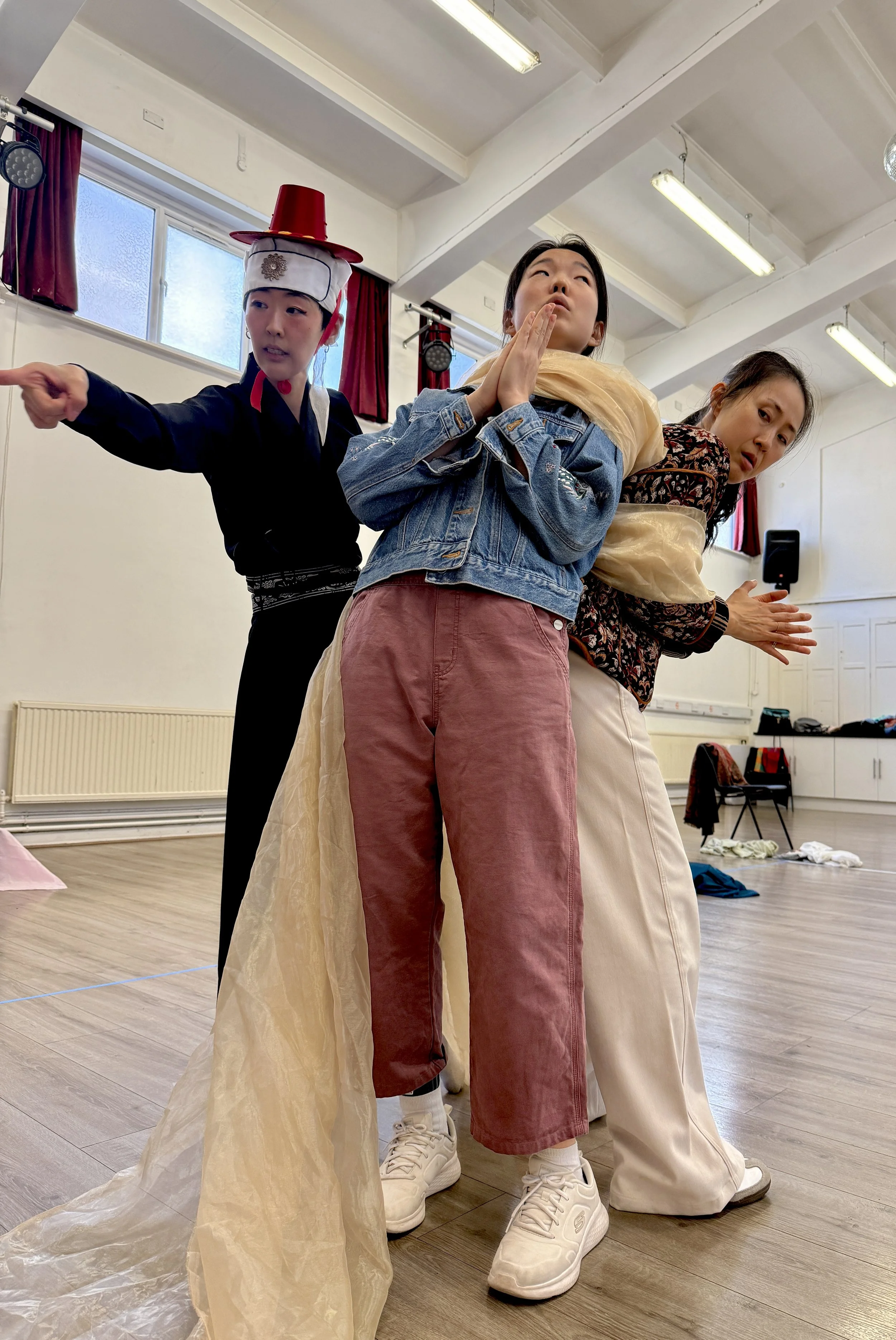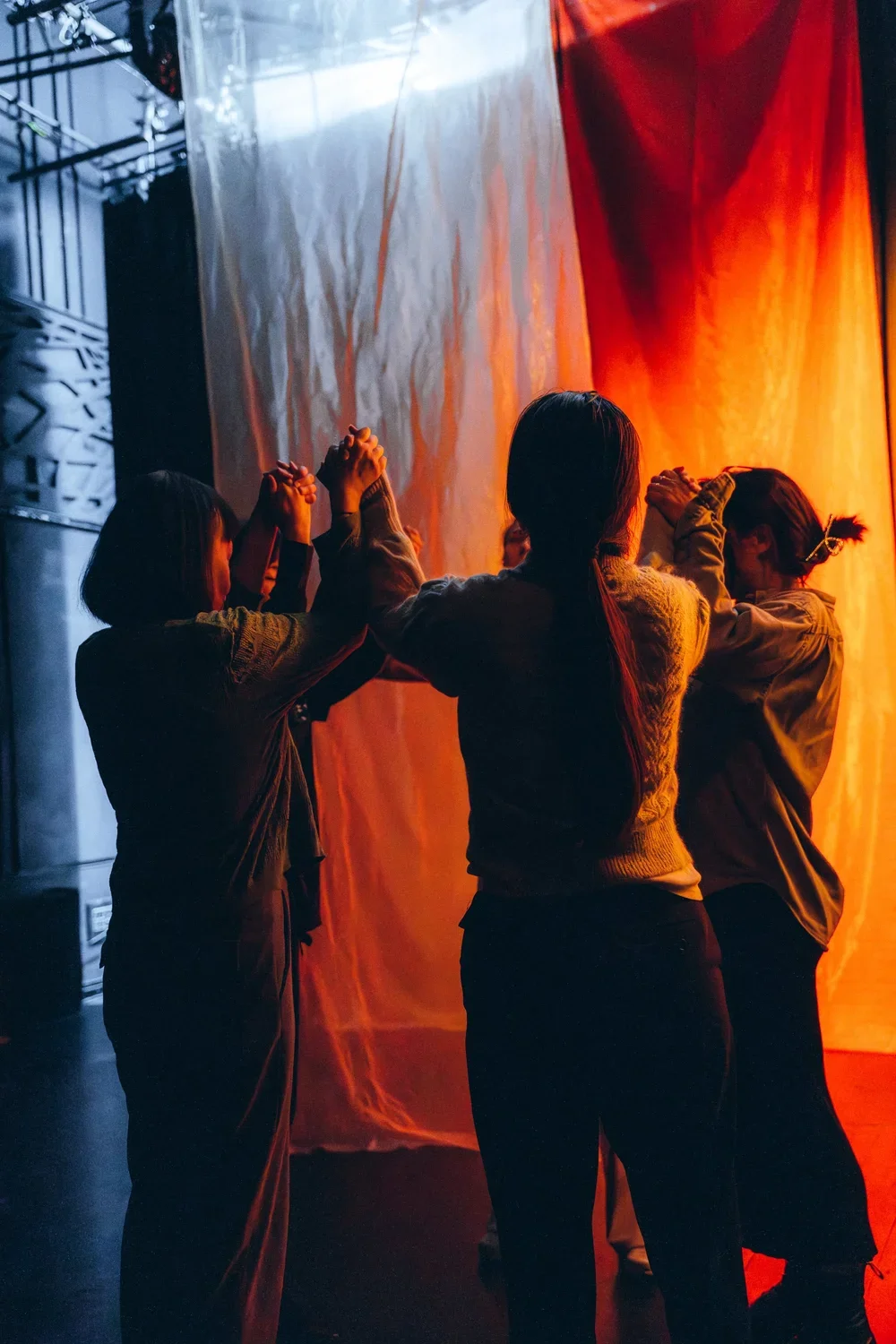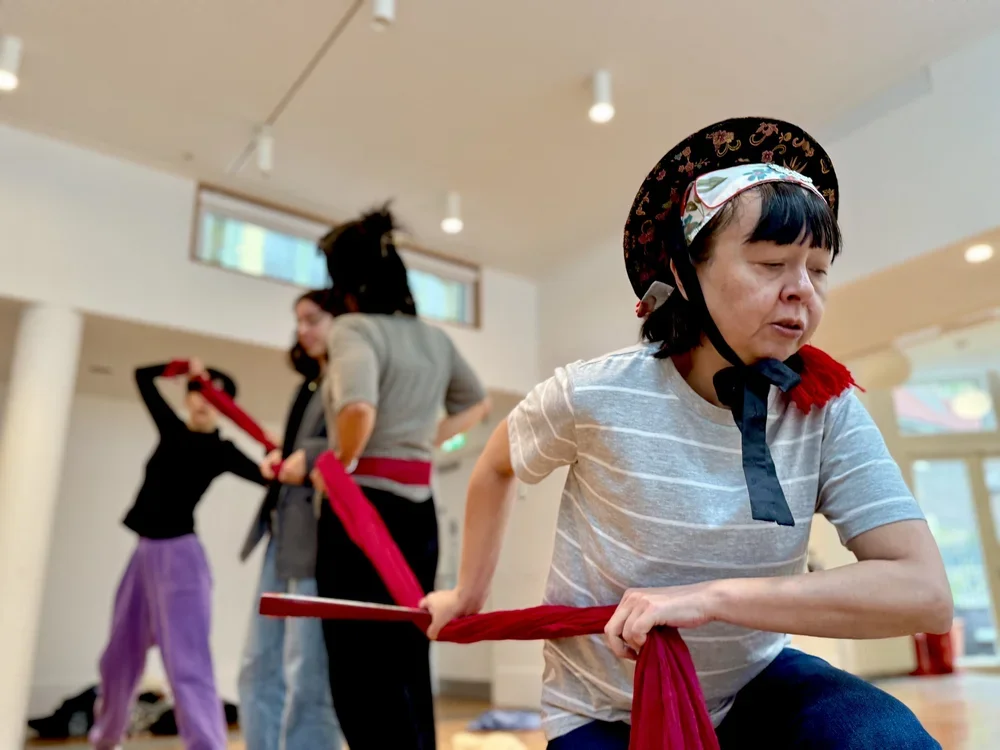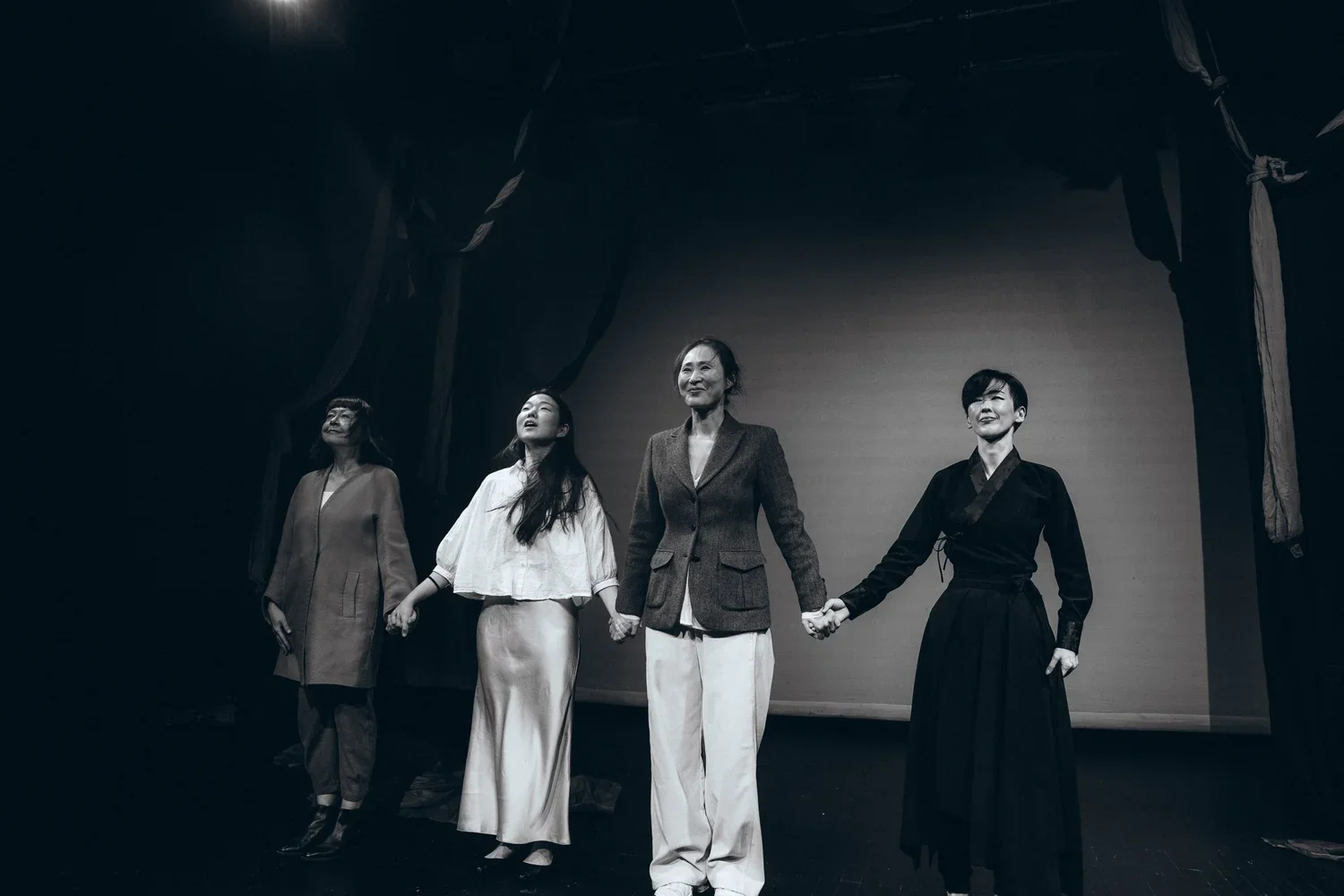This Month’s Theme is
Behind the Curtains
•
Behind the Curtains •
Editor’s note:
This month, E-Scratch tears open the seams of Cancelling Tiger — our first full-length creation as Kassna Kollektiv, brought to life at the Bloomsbury Festival. What happens when the stage lights cut and the questions keep burning?
We’re tracing the fractures, the friction, the mess and magic that held it all together. Each of us speaks from inside the process — and this time, our producer Tuyet Van Huynh joins the roar, sharing her reflections on how this tiger came alive.
Welcome backstage — where tigers wobble, ideas tumble, and magic sneaks in sideways.
From Title to Tears: A Producer’s Journey
By Tuyet Van Huynh
When Namoo first got in touch, Cancelling Tiger was only the second Korean story I’d ever come across written for a UK stage. I was instantly drawn in — first by the title, then by the cast. I already knew Minhee and Jessie, two actors whose work I’d long admired from a distance. But it was meeting Namoo that sealed it. Within minutes, I knew I wanted to co-produce.
My role was small, but it mattered. Productions like this — stories that rarely get the funding or visibility they deserve — often rely on people wearing multiple hats. With only a two-day run and a modest contribution from Bloomsbury, Bishop & Sewell, I wanted to make sure the theatre was full and the team had what they needed. That meant everything from pulling together in-kind rehearsal spaces to sourcing props, costume bits, and set materials on a shoestring — all while running full-time marketing, making content, and basically doing whatever needed doing to get it seen. The glamour of producing, right?
Beyond the practical challenges, Cancelling Tiger mattered because it foregrounded deeply human stories, centred women, and experimented with form and non-linear storytelling — perspectives rarely seen on UK stages.
Then there was Suyoung Park: shaman spirit, movement director, and the third point of the Kassna triangle. I met her after a long day of filming when she turned up with a box of doughnuts because I hadn’t eaten. That was it — I was in love. We kept a running joke about doughnuts saving the day — saving the world, really — and in a show like this, on no budget, it wasn’t far from the truth. Every time I saw the team after that, they were fed doughnuts. ’Coz they save the world.
It’s the small things that hold big projects together.
The moment that stayed with me was a Korean audience member, near tears after the show, saying it was the first time she’d seen herself reflected on stage — words, visuals, gestures that needed no translation. That alone made it worthwhile.
For me, supporting work like Cancelling Tiger isn’t just about now; it’s about who comes next. It’s about making space so others don’t have to fight quite as hard to take it.
Between Worlds: Carved in Milk and Blood
by Minhee Yeo
Photo by Tuyet Van Huynh
Photo by Tuyet Van Huynh
Creating Cancelling Tiger as Kassna Kollektiv was one of the most demanding and meaningful journeys I’ve ever taken. I went through pregnancy, giving birth, and breastfeeding while developing and performing this piece — living through cycles of creation both on and off stage, a process carved in milk and blood. I couldn’t have done it without my mother, who flew from Korea to support me. Her presence and care became an invisible thread woven through the work itself.
The process was messy, intimate, and full of heart. I often felt lost, nervous, lonely, and isolated — sometimes wondering if it was the character Chaerin I was inhabiting, or simply myself navigating the whirlwind of postpartum hormones — but I was also excited and deeply committed to making the best work possible. We built the show through shared language and instinct, borrowing spaces, improvising, and holding each other through exhaustion and discovery.
Namoo’s powerful writing and direction shaped the story’s soul, while Suyoung’s movement direction — and her magnetic presence on stage — carried time into motion. We were also lifted by an incredible team: Paul’s evocative music, Camille’s beautiful set and costume design, Jessie and Liz completing the cast with such generosity and depth, and Tuyet’s relentless producing, which made everything possible.
Performing it felt like standing between worlds — between myth and memory, motherhood and artistry, Korea and the UK. Looking out into the audience, it didn’t matter where anyone came from. What mattered was the shared breath, the laughter, the silence — moments of recognition that spoke for themselves.
For me, Cancelling Tiger was about resilience, transformation, and belonging. It showed me that stories, like bodies and communities, can carry immense strength even in their most fragile moments. This project will always remind me of what it means to create life while creating art.
Walking Backwards, Moving Forward
By Suyoung Park
What should I say about Korea? What kind of Korean am I?”
These were the questions I carried with me throughout this performance.
For me, Mudang (Korean shamans) and Goot (shamanic rituals) embody a form of Korean-style live entertainment: a powerful blend of spirituality, drama, and community. I have always found this tradition deeply engaging, and I hoped that the audience would experience the shaman’s presence and actions with the same sense of fascination and wonder.
As a movement director, I guided the actors to walk backwards between scenes. This gesture symbolised rewinding memories, as if turning back the tape of time. Through this device, I wished to allow the audience to assemble each scene in their own way — to complete their own puzzle of the performance.
Ultimately, whether we walk backwards or forwards, the future will come. What matters is that we continue to confront and move through it — as artists, as women, and as human beings.
Next
By Namoo Chae Lee
My brain says I should rest,
My body says I can’t move anymore,
But my heart keeps telling me to run.
So I let it beat — until it hurts.
That’s why I do theatre:
to feel alive,
to feel my heart beat,
and to keep running for the next story.
I am never satisfied, but I couldn’t be prouder.
I’ve talked enough through the play — that’s enough.
Now, it’s time for the next.




